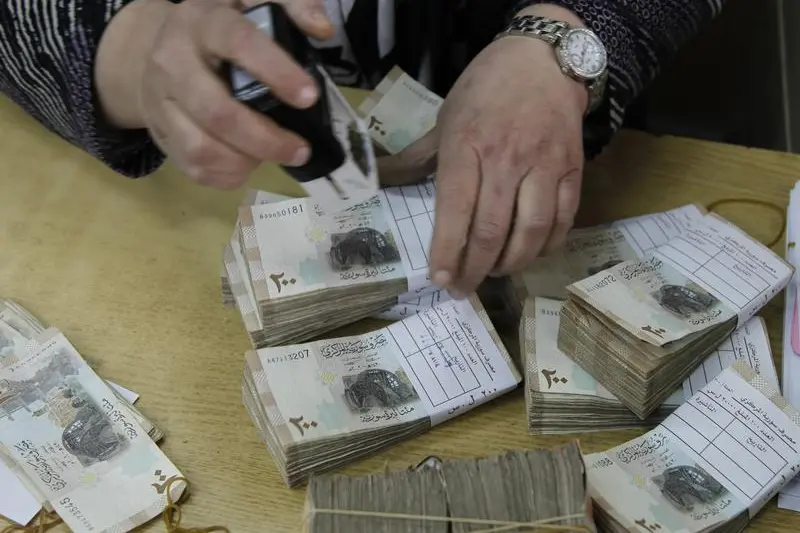PHOTO
AMMAN- Syria has raised its official exchange rate for banks to help attract foreign transfers away from the black market and support the local pound currency, which has fallen to record lows in recent weeks, bankers and businessmen say.
The rate was set at 2,512 to the U.S. dollar for the first time since last June to bring it closer to informal market rates which briefly hit a record 4,700 per dollar last month before draconian capital controls helped stabilise the currency.
Traders said the pound was trading at around 3,200 per dollar on Thursday.
Other latest moves included tighter controls on bank withdrawals and internal transfers and restricting movement of cash around the country to stop dollar hoarding.
An outcry by banks and businessmen over central bank actions that had choked liquidity within banks and pushed depositors to hoard cash at home contributed to Tuesday's abrupt sacking of central bank governor Hazem Karfoul, bankers said.
"It's an action to attract transfers from abroad to legal channels," said one senior businessmen in Damascus, adding that the central bank had a day before raised the exchange rate to 2,500 for Syrians arriving at airports and border crossings.
Bankers said the central bank, which has largely abandoned efforts to support the pound, has also cut non-essential imports in the last two months to preserve remaining foreign currency.
Most foreign exchange dealing is done via the black market. Syria's economy, crippled by war, is increasingly dollarised as people try to protect themselves against currency depreciation and inflation.
The central bank maintains several tiers of dollar exchange rates, including the 2,500 rate for money transfers by international organizations such as the United Nations and for Syrians abroad seeking exemption from military service.
The local currency has not recovered since last summer when it broke 3,000 to the dollar for the first time after tougher U.S. sanctions that businessmen said would worsen Syria's dire economic plight.
Further squeezing the inflow of dollars has been a financial crisis in neighbouring Lebanon, where bank accounts of Syrian businessmen holding billions of dollars have been frozen, businessmen and bankers say.
The collapse of the currency has driven up inflation as Syrians struggle to afford food, power and other basic goods.
The pound was valued at 47 per dollar before protests against President Bashar al-Assad's authoritarian rule erupted in March 2011, unrest that led to Syria's decade-long war.
(Reporting by Suleiman Al-Khalidi; Editing by Catherine Evans) ((suleiman.al-khalidi@thomsonreuters.com; +96279-5521407;))





















